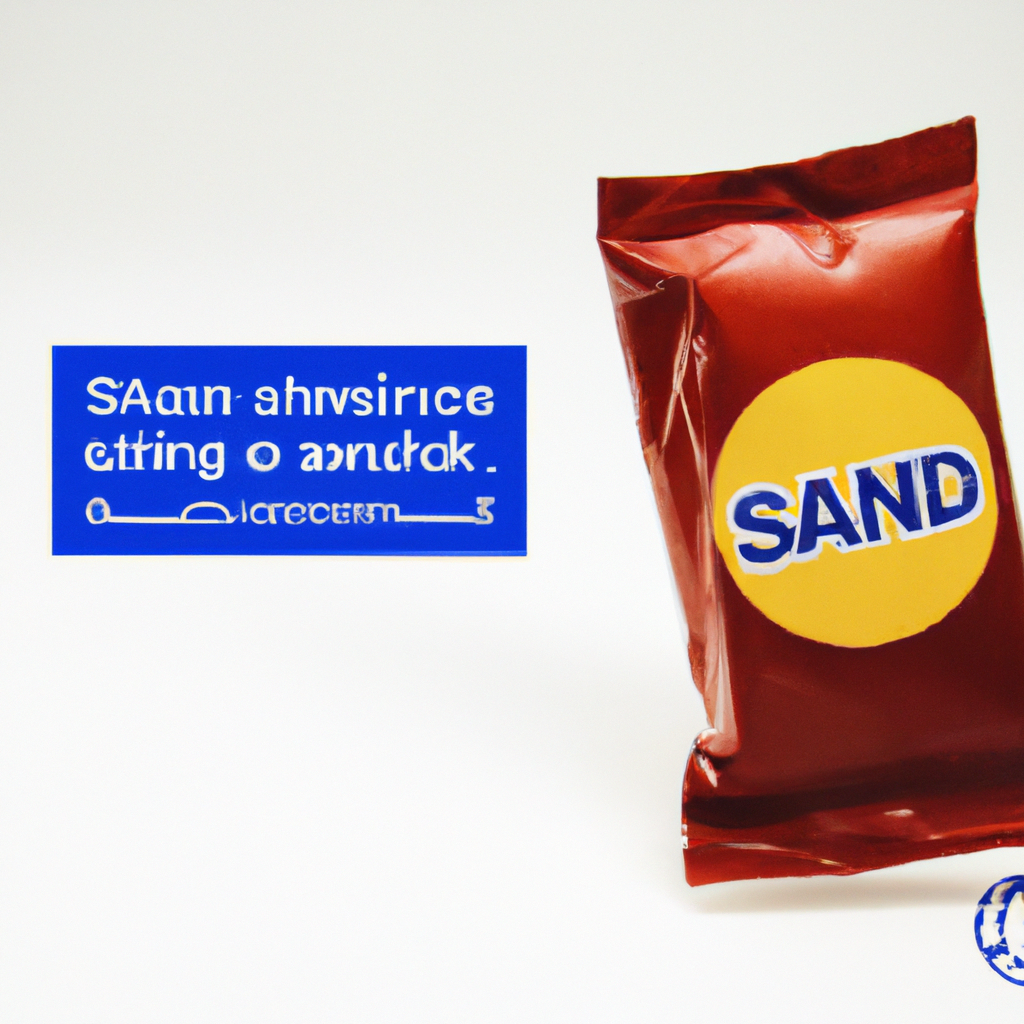Picture this: you’re sitting at your desk, trying to focus on a task, when suddenly your stomach grumbles. The temptation to grab a snack is strong, but a question lingers in your mind: “Isn’t it better to avoid snacking entirely?” We’ve all heard conflicting advice on snacking – some say it’s essential for maintaining energy levels, while others argue it leads to weight gain. In this article, we’ll explore the pros and cons of snacking and help you make an informed decision about whether to indulge or abstain.

Benefits of Avoiding Snacking
Improved Weight Management
By avoiding snacking, you can effectively manage your weight. Snacking often leads to consuming additional calories that are not necessary for your body’s needs. When you eliminate unnecessary snacking, you can create a calorie deficit, which can contribute to weight loss or weight maintenance. This can be especially beneficial if you’re trying to achieve specific weight management goals.
Better Blood Sugar Control
Snacking can negatively impact blood sugar levels, especially if the snacks are high in refined carbohydrates and added sugars. These types of snacks can cause a rapid increase in blood sugar followed by a crash, leading to feelings of fatigue and cravings for more unhealthy foods. By avoiding snacking, you can maintain more stable blood sugar levels, which is crucial for overall health and energy regulation.
Reduced Risk of Chronic Diseases
Avoiding snacking can have long-term health benefits by reducing the risk of chronic diseases such as obesity, type 2 diabetes, heart disease, and certain types of cancer. Snacks, particularly those high in unhealthy fats and sugars, can contribute to weight gain and inflammation in the body. By cutting out unnecessary snacks, you can lower your chances of developing these serious health conditions.
Drawbacks of Snacking
Potential Weight Gain
One of the major drawbacks of snacking is the potential for weight gain. Snacks are often high in calories, and mindlessly indulging in them throughout the day can lead to an excess intake of calories. This surplus can contribute to weight gain over time, especially if you’re not offsetting the extra calories with physical activity and a balanced diet. Being mindful of your snacking habits can help you avoid this drawback.
Negative Impact on Blood Sugar
Another drawback of snacking is the negative impact it can have on blood sugar levels. Many snacks are highly processed and contain added sugars, which can cause a rapid spike in blood sugar followed by a crash. This rollercoaster effect can leave you feeling tired, irritable, and craving more sugary foods. By avoiding snacks, you can maintain more stable blood sugar levels and avoid these energy fluctuations.
Increased Risk of Chronic Diseases
Snacking, particularly on unhealthy foods, can increase the risk of developing chronic diseases. Snacks high in refined carbohydrates, trans fats, and added sugars can contribute to weight gain, inflammation, and insulin resistance, all of which are risk factors for conditions such as obesity, diabetes, and heart disease. By avoiding unnecessary snacking, you can reduce your risk of developing these chronic illnesses.
Effects on Digestion
Interference with Meal Times
Snacking between meals can interfere with your regular eating schedule and disrupt your body’s natural digestion process. When you constantly graze on snacks, your body may not have enough time to fully digest and absorb the nutrients from your previous meal. This can lead to digestive issues such as bloating, indigestion, and discomfort. By avoiding snacking, you can allow your body to digest meals properly and promote optimal digestion.
Digestive System Overload
Regular snacking can overload your digestive system, especially if the snacks are high in unhealthy fats, sugars, and processed ingredients. These types of snacks can be difficult for your body to break down, leading to digestive distress. Over time, this can negatively impact your gut health and increase the risk of digestive disorders such as irritable bowel syndrome (IBS) and acid reflux. Opting to avoid snacking can help alleviate the strain on your digestive system and promote overall digestive wellness.
Reduced Nutrient Absorption
Snacking on unhealthy, nutrient-poor foods can hinder your body’s ability to absorb essential nutrients from your main meals. When you fill up on empty snack calories, you may not have enough room or appetite for nutritious foods during mealtime. This can lead to suboptimal nutrient absorption and potential nutrient deficiencies. By avoiding snacking and focusing on well-balanced meals, you can ensure that your body gets the nutrients it needs for optimal health.
Impact on Energy Levels
Cravings and Energy Fluctuations
Snacking can contribute to energy fluctuations throughout the day. Unhealthy snacks that are high in added sugars and refined carbohydrates can cause a quick spike in energy followed by a crash, leaving you feeling tired and sluggish. This energy rollercoaster can negatively impact your productivity, mood, and overall wellbeing. By avoiding snacking, you can maintain more stable energy levels and prevent these energy fluctuations.
Lack of Sustained Energy
While snacks may provide a temporary energy boost, they often lack the necessary nutrients to sustain energy levels in the long run. Many snacks are high in empty calories and lack essential macronutrients such as protein and healthy fats, which are crucial for sustained energy. By focusing on well-balanced meals instead of snacking, you can fuel your body with the nutrients it needs to maintain optimal energy throughout the day.
Decreased Productivity
Frequent snacking can lead to decreased productivity, especially if the snacks are unhealthy and provide little nutritional value. Consuming sugary snacks can lead to energy crashes and brain fog, making it difficult to concentrate and perform at your best. By avoiding unnecessary snacking and focusing on nutrient-dense meals, you can improve your productivity and mental clarity, allowing you to tackle tasks more efficiently.

Psychological Factors
Emotional Eating
Snacking can often be associated with emotional eating, where individuals turn to food for comfort, stress relief, or as a coping mechanism for their emotions. This can create an unhealthy relationship with food and lead to overconsumption of calorie-dense snacks. By avoiding snacking and addressing the underlying emotional triggers, you can develop healthier coping mechanisms and improve your overall emotional wellbeing.
Food Obsession
Regular snacking can also contribute to an obsession with food. When snacks are constantly within reach, it can be challenging to resist the temptation and maintain self-control. This obsession can lead to excessive preoccupation with food and constant thoughts about what and when to eat next. By avoiding unnecessary snacking, you can free up mental space and focus on other aspects of your life without being consumed by thoughts of food.
Loss of Control
For some individuals, snacking can lead to a loss of control over their eating habits. Mindless snacking throughout the day can make it difficult to keep track of the number of calories consumed, leading to overeating. This lack of control can hinder progress towards weight management goals and overall health. By avoiding unnecessary snacking, you can regain control of your eating habits and make more mindful food choices.
Social and Environmental Influences
Overconsumption in Social Gatherings
Social gatherings, parties, and events often involve an abundance of snacks and tempting treats. Peer pressure and the desire to fit in can lead to overconsumption of these snacks, even if you’re not hungry. By avoiding snacking in these situations and focusing on socializing and enjoying the company of others, you can prevent overconsumption and make healthier choices.
Unhealthy Snacking Environments
Certain environments may promote unhealthy snacking habits. For example, keeping a pantry stocked with processed snacks or working in an office with a constant supply of sugary treats can make it difficult to resist the temptation to snack mindlessly. By creating a supportive food environment that is free from unhealthy snacks, you can set yourself up for success and make it easier to avoid unnecessary snacking.
Peer Pressure
Peer pressure can play a significant role in snacking habits. Whether it’s coworkers offering you treats, friends encouraging you to indulge, or family members expecting snacks to be a part of social gatherings, it can be challenging to resist the influence of others. However, by setting your own boundaries and confidently saying no to unnecessary snacks, you can prioritize your health and well-being.

Snacking Alternatives
Healthy Meal Planning
Instead of snacking throughout the day, prioritize healthy meal planning to ensure you’re properly nourishing your body. Plan and prepare well-balanced meals that include a variety of nutrient-dense foods such as lean proteins, whole grains, fruits, and vegetables. This way, you can satisfy your hunger and maintain stable energy levels without the need for unhealthy snacks.
Mindful Eating
Another alternative to mindless snacking is practicing mindful eating. Mindful eating involves paying full attention to the present moment while eating, including being aware of your hunger and satiety cues. By fostering a mindful eating practice, you can better understand your body’s needs and make conscious choices about when to eat and when to stop, ultimately avoiding unnecessary snacking.
Choosing Nutritious Snacks
If you find that snacking is necessary or enjoyable for you, choose nutritious snacks that provide both satisfaction and nourishment. Opt for whole foods such as fruits, vegetables, nuts, and seeds that are rich in vitamins, minerals, and fiber. These snacks can provide essential nutrients and keep you feeling satisfied without the negative consequences associated with unhealthy snacking.
Considerations for Snack Selection
Portion Control
When selecting snacks, portion control is crucial. Even healthy snacks can contribute to weight gain if consumed in excess. Be mindful of serving sizes and try to avoid mindless snacking straight from the package. Instead, portion out your snack into a separate bowl or container to help you better gauge the amount you’re consuming.
Balanced Macronutrients
Choose snacks that contain a balance of macronutrients, including protein, carbohydrates, and healthy fats. This balance can help stabilize blood sugar levels, provide sustained energy, and keep you feeling satisfied for longer periods. For example, pair a piece of fruit with a small handful of nuts or enjoy Greek yogurt with berries for a snack that combines protein, carbohydrates, and healthy fats.
Limited Added Sugars and Processed Foods
When selecting snacks, aim to minimize your intake of added sugars and processed foods. These snacks often contain empty calories, lack essential nutrients, and can lead to negative impacts on your health. Instead, opt for snacks that are minimally processed, whole, and naturally sweetened, such as fresh fruit, vegetables with hummus, or homemade trail mix.

Circumstances Favoring Snacking
Long Gaps between Meals
There are certain circumstances where snacking may be necessary or beneficial. If you have long gaps between meals due to a busy schedule or physical demands, a healthy snack can help bridge the gap and maintain stable energy levels. In these situations, choose snacks that provide sustained energy, such as a combination of complex carbohydrates, protein, and healthy fats.
Active Lifestyle or Physical Demands
If you lead an active lifestyle or have physical demands such as intense workouts or physically demanding jobs, snacking can provide an added energy boost. In these circumstances, choose snacks that are easily digestible and provide a combination of quick-release and sustained energy, such as a banana with nut butter or a protein bar.
Medical Conditions
Some individuals with specific medical conditions may benefit from strategic snacking. For example, individuals with diabetes or low blood sugar may need to snack strategically to maintain stable blood sugar levels. In these cases, working with a healthcare professional or registered dietitian can help create a personalized snacking plan to support their unique needs.
Strategies to Avoid Snacking
Identify Triggers and Replace Habits
To avoid snacking, it’s essential to identify the triggers that lead to mindless eating. Whether it’s boredom, stress, or habit, be mindful of the circumstances that typically prompt you to snack and find alternative ways to address those triggers. For example, if you tend to snack out of boredom, try engaging in a different activity such as taking a walk, reading a book, or practicing a hobby.
Create a Supportive Food Environment
Creating a supportive food environment is crucial for avoiding unnecessary snacking. Stock your pantry and refrigerator with healthy, whole foods that align with your goals and preferences. Remove or limit the availability of unhealthy snacks and replace them with nutritious alternatives. Having healthy options readily available will make it easier to make mindful choices and avoid falling into the snacking trap.
Manage Stress and Emotions
Stress and emotions can often lead to mindless snacking as a way to cope. Finding alternative methods to manage stress and regulate emotions can help break the cycle of emotional eating. Engage in stress-reducing activities such as exercise, meditation, deep breathing, or journaling. Developing healthy coping mechanisms can help you avoid turning to food for emotional relief and maintain a more balanced relationship with eating.
In conclusion, while snacking can have its merits, there are numerous benefits to avoiding unnecessary snacking. From improved weight management and better blood sugar control to reduced risk of chronic diseases, prioritizing mindful eating and nutritious meals over mindless snacking can positively impact your physical and mental well-being. By considering the drawbacks of snacking, understanding the effects on digestion and energy levels, recognizing psychological factors and social influences, and exploring alternatives and strategies, you can make conscious choices that align with your health goals and lead to a more balanced and sustainable approach to eating. Remember, it’s always best to consult with a healthcare professional or registered dietitian before making any significant changes to your diet or eating patterns.

